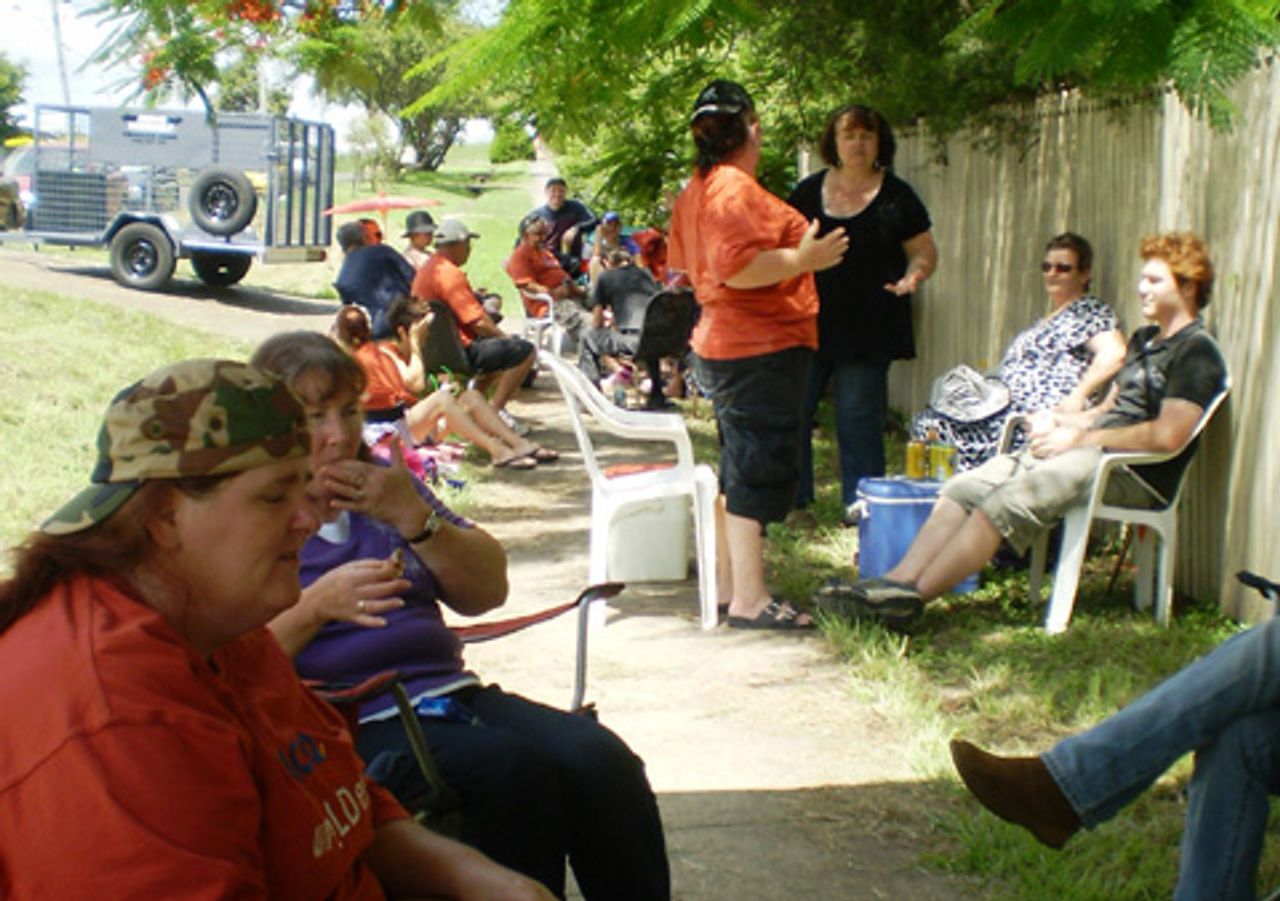Even as she shed some tears in federal parliament to feign concern over the Queensland flood disaster, Prime Minister Julia Gillard made clear last Wednesday that little of her government’s “relief package” would go to rebuilding local council infrastructure.
According to the Local Government Association of Queensland, 63 of the state’s 73 local government areas suffered major flood and cyclone destruction in December and January. The association estimates that damage to council-owned assets would cost over $2.5 billion to repair. Facilities affected include water treatment facilities, sewage plants, roads and bridges.
Brisbane City Council estimates that its damage bill will be $440 million, with insurance only expected to cover $70 million. Without federal assistance, the $370 million for repairs will be passed on to residents. By one estimate, that could amount to an additional $800 per year for each ratepayer. Likewise, Queensland Urban Utilities, southeast Queensland’s council-owned water company, told the media that unless it received federal support to repair the $55 million damage to its infrastructure, it would increase consumers’ water bills by 2.5 percent.
Gillard, however, responded to these pressing needs by invoking a clause of the National Disaster Relief and Recovery Arrangements that exempts the federal government from providing repair funds for local council assets that provide services which carry a charge. There will be no federal funds to repair flood-damaged council services such water, sewage or Brisbane’s river ferry terminals.
The overwhelming majority of Labor’s $5.6 billion flood package will be used for repairing economic infrastructure, such as railways, roads and ports, that mostly service the mining industry and other major corporations. Devastated householders will receive only $720 million, an average of just $1,400 each.
 East Ipswich protest
East Ipswich protestLabor’s package has been financed by $3.8 billion in spending cuts, including to education, housing and other social programs. A further $1.8 billion will be raised by a tax levy, the bulk of which will be paid by working people. Gillard last week stated that more “pain” would be needed to pay for similar cyclone damage. Yesterday, the Business Council of Australia (BCA) called on the government to cut disability pensions to pay for flood relief. BCA president Graham Bradley told ABC radio that the pensions were a “large budget item” that should be “reassessed”.
Anger is also rising over the fact that the situation facing tens of thousands of flood survivors, who are struggling to rebuild severely damaged homes, businesses and lives, is being exacerbated by the insurance corporations.
Many working and lower middle class households either could not afford flood insurance, which costs up to $5,000 per year, or have now learnt to their dismay that they are not covered for flood damage. Major insurers insist that they will pay only for storm damage and flash flooding, not claims relating to overflowing rivers, ocean surges, or overloaded storm water drains. Hundreds of residents are also being kept in a state of limbo, waiting on insurance assessors and hydrologists to inspect flood-damaged properties.
Some of the pent up anger exploded early last week at “information meetings” called by the Insurance Council of Australia in Ipswich, in Brisbane’s west. More than 12,000 homes were flood-damaged in the area, many of them totally inundated.
Tony Lord, a resident of Goodna, one of the worst-hit Ipswich suburbs, told the media after one meeting: “Everyone is dissatisfied with them [the insurers] and the crap that is coming out of them.” Lord, whose home was inundated, had still not received a decision from his insurer, the Commonwealth Bank, more than one month after he lodged a claim.
Another Goodna resident, Andrew Devine, declared: “We are stuck in the middle. We can’t do anything on our house until the insurers say yes or no. The whole situation is unacceptable.”
The World Socialist Web Site spoke to several Ipswich residents at a locally-organised protest rally in East Ipswich on Saturday.
 Stephen Tarrant
Stephen TarrantProtest organiser Stephen Tarrant, whose home was inundated, said he was still waiting for his insurance company to organise a hydrologist’s inspection. Unable to stay any longer with friends or to secure emergency accommodation, Tarrant and his family were living in a tent inside their flood-damaged house.
Tarrant was still unsure whether he was eligible for an insurance payout, yet could not obtain government assistance until the insurer made a decision. “This is a two-way street,” he said. “We are still paying the insurance company; they should pay us for the flood damage.”
Colin Hall is a manager and part-owner of Bremer Waters, a retirement village with 150 dwellings and 300 occupants. About 40 percent of its homes were damaged, and the community centre, gym, craft room, salon and coffee shop were destroyed.
Hall, whose home in the village was destroyed, said: “If they [the residents] had a small amount of savings that will have all gone by now. Most are too old to find work and so they have no money.” Some residents had been forced to move back into the shell of their houses because they had “nowhere else to go”.
While the insurance corporations have done everything possible to avoid paying flood insurance claims, a recent annual report into the industry revealed the massive salaries and remuneration packages of insurance chief executives. QBE Group chief executive Frank O’Halloran received an annual salary of $2.1 million, plus $4.6 million in long-term bonuses and share offers; Suncorp Group CEO Patrick Snowball drew $2.9 million, plus $962,500 in bonuses; and IAG chief Michael Wilkins received $2.6 million, plus $1.6 million in bonuses.
The criminal indifference of the Labor government and the insurance corporations to the suffering of ordinary working people is another expression of a social system in which every basic right and condition is subordinated to the accumulation of private profit.
The authors also recommend:
Australia’s floods: a failure of government and the profit system
[29 January 2011]
Full coverage of the Australian flood crisis
